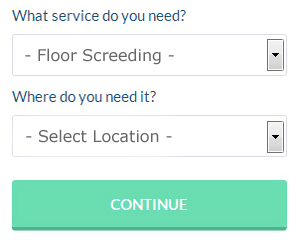Floor Screeding Crowland Lincolnshire (PE6): When embarking on the renovation of a property or basement, addressing an uneven or damaged floor, or considering the installation of underfloor heating in your Crowland home, it is imperative to rely on the expertise of a floor screeding specialist. The purpose of screeding is to create a seamless and level surface over a concrete sub-base, which can then be used as a solid foundation for your preferred flooring material. This crucial procedure ensures a robust and high-grade finish for the whole floor structure, guaranteeing its endurance and permanence. By seeking the assistance of a floor screeding professional, you can be certain of achieving a faultless and durable floor surface that caters precisely to your particular requirements.
FLOOR SCREEDING COMPANIES CROWLAND
A dependable floor screeding company in Crowland will have all the experience and know-how to help you achieve a perfect floor in whatever size room you are working on. They will be able to advise you on the correct sort of screed your project requires, and the best methods for applying and installing it.
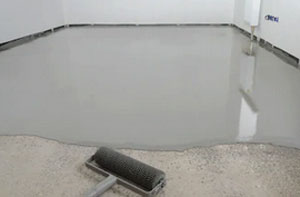
It may be necessary, depending on the proposed use of the room, for a structural engineering survey to conform with building regulations on load bearing, point loadings and flex strength of the screed floor.
Bringing in a skilled and highly trained specialist will ensure that you get the right type of screed for the room's allocated usage to extend the life of your floor. Choosing the appropriate screeding materials and the method of installation is crucial if you want to finish up with a quality and durable finish for your floor.
Make certain that you get more than one quotation for your Crowland based screeding project and also ask what standard of finish each quotation is for. For residential homes a quotation will generally be provided for an SR (Surface Regularity) standard of SR1 or SR2. SR1 is the highest level, and while SR2 and SR3 might be cheaper initially, they do not guarantee a totally flat or even surface. Any errors in the screeding (as might arise with SR2 or SR3) may cause problems in laying flooring due to ridges, indentations, flat spots in the floor surface.
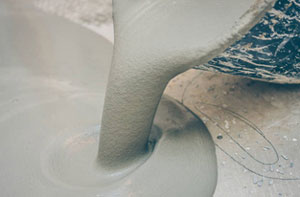
All Crowland screeding contractors have to stick to British Standards (BS8204) and ought to have some kind of accreditation from screeding material and equipment manufacturers, e.g. Gypsol, Flowcrete, Cemfloor. The assessment and training of a screeding company by such manufacturers is underlined through this accreditation scheme, and offers assurances of safe working practices and reliability on any flooring project involving their materials.
For larger floor screeding projects in hotels, hospitals, warehouses, schools, shops and factories, skilled Crowland commercial screeders will be required.
TYPES OF SCREED
Standard Screeds - Widely used in domestic projects where the mix of cement and sand is good for basic floor traffic use. 5 parts sand to 1 part cement is the normal mix for standard screeds. This 5 to 1 ratio standard flooring screed will set hard at a rate of just one millimetre per day after laying.
Fast Drying and Advanced Drying Screeds - If you need to press ahead urgently with the flooring because of time constraints, these screeds dry much quicker than standard flooring screeds. The vast majority of the fast or advanced drying screeds are of the fibre reinforced kind and are appropriate for a wide variety of flooring projects where the speedier curing rate of three to seven millimetres is a considerable advantage.
Industrial and Heavy Duty Screed - Made for maximum strength and durability on floors where traffic is high or specific loading of the floor base is required.
Polymer Screeds - When a reduced thickness of floor is required due to construction factors, a polymer screed offers an extremely high strength solution to this problem. The setting times for these vary according to product guidelines.
Liquid or Self-Levelling Screeds - When the highest possible standard of finish is needed this blend of latex and cement is used to create SR1 quality floor screeding. Mainly used to finish off a damaged floor or poor substrate level in order to lay a new flooring surface, such as tiling over the top of it. These can be as little as one millimetre in depth, and due to the latex polymers, will still provide high strength.
Fibre Reinforced Screed - Mostly used with under floor heating and is the suggested option in these projects. The fibres in this screed increase overall durability and strength whilst also protecting against thermal shrinkage and cracking. At roughly 1mm per day, it has a similar drying rate to standard floor screed.
SCREEDING PREPARATION AND INSTALLATION
Good preparation is vital for a top quality screed surface that will be durable and hard wearing. Any paint, debris, grease and oil on the existing floor level can adversely affect the adhesion of the screed, and must be eradicated.
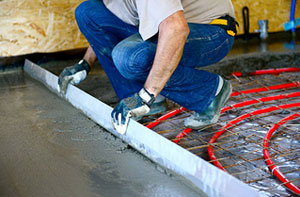
Any cleaning chemicals used in this process should leave no residues, and the floor surface must be allowed to dry out naturally. If screeding over a stone or cement floor then all cracks should be mended to prevent them from "travelling" up through a screed layer and causing deviations on the final surface. An on-site survey will enable the screeding specialist to identify this preparation work and tackle it before commencing to pour the screeding.
Before any screeding can be laid a damp proof membrane (DPM) will have to be put down to shield the final flooring and screed from moisture. There could be 2 or 3 layers of varying thickness polythene to act as a barrier between the screed and the insulation layer.
A further air-tight barrier may be required if your building is in an area which is known to be susceptible to radon. This could be as simple as an air-tight membrane, or in severe situations an extraction and ventilation system is installed underneath the screed to take away any influx of air and gas from ground level.
As soon as the base has been properly prepared and any membranes installed, a primer or sealant is then put on. These sealers and primers will guarantee the screed bonds effectively to the base surface and help to achieve a good quality finished floor. Devices such as airless sprays can be used to apply a primer or sealant, by certified screeding companies in Crowland sticking to the manufacturer's guidelines and safety advice.
If required, this is the time that underfloor heating can be laid out in the correct manner and installed. Insulation panels will be arranged and the heating pipes and cabling will be firmly mounted to prevent any movement while the screed is applied. Warmth will be evenly spread across a floor area in a skillfully installed under floor heating system, and along with it being an efficient method of heating, it's a good choice for the majority of Crowland home restoration projects.
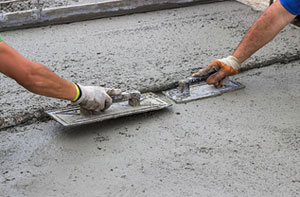
Needless to say, if you aren't fitting underfloor heating, you simply bypass this step and get on with applying the floor screed. The particular requirements of the room will dictate the type of screeding that is used. For advanced and quick drying screeds there'll be at least twenty four hours delay before it is able to be walked on, and a further Three days minimum before any flooring material can be fitted. Such timescales will be increased for heavy duty and standard screeds and the manufacture's guidelines should be followed to create the optimal finish and durability of the floor.
The SR standard of your screed can be verified once it's set sufficiently to be walked on. Through the use of a two metre straight-edge the floor surface is examined for any dips, ridges and deviations in the screed surface.
- SR1 - SR1 is the highest standard and permits only three millimetres of deviation from the straight-edge.
- SR2 - SR2 is the classification for normal standard commercial and industrial floors and can deviate from the straight-edge by up to 5 millimetres.
- SR3 - For utility floors where the finish is fairly unimportant SR3 is the classification and has a maximum deviation measurement of ten millimetres or less.
If you need to check the floor for load bearing, a structural engineer is necessary to conduct the testing. Using specialist equipment the structural engineer will verify the screed strength and its suitability for use in a load bearing environment. This will include a "drop hammer test" which records specific data on the strength and flexibility of the screed. Any screeding that has point load requirements must be approved by a trained structural engineer following the British Standards BS8204 guidelines. (Tags: Screeding Crowland, Floor Screed Crowland, Floor Screeding Services Crowland, Floor Screeding Crowland).
Floor screeding is available in Crowland and also in nearby places like: Holbeach St Johns, Whaplode St Catherine, Cuckoo Bridge, Shepeau Stow, Frognall, Tongue End, Thorney, Spalding, Baston, Peakirk, Deeping St Nicholas, Glinton, Newborough, Holbeach Drove, Market Deeping, Cowbit, and in these postcodes PE6 0LN, PE6 0HP, PE6 0HA, PE6 0EQ, PE6 0AH, PE6 0ED, PE6 0LL, PE6 0ET, PE6 0EX, and PE6 0NN. Locally based Crowland floor screeders will most likely have the telephone dialling code 01733 and the postcode PE6. Checking this out will make certain that you're accessing local floor screeding. Crowland home and business owners will be able to benefit from these and numerous other comparable services. By clicking on the "Quote" banner you can get screeding estimates from local specialists.
Granolithic Screeding Crowland
Granolithic screeding is a type of floor finishing technique which is used to provide a smooth and level surface for floor tiles, carpets or other flooring materials. It is a mixture of cement, sand, and aggregate (for instance marble or granite chips) that is applied over a concrete base. The mixture is spread over the surface and levelled using a straightedge to produce a seamless and hard-wearing finish that is durable and long-lasting.
The resulting flooring is slip-resistant, hard-wearing and easy to clean, making it ideal for use in areas with high foot traffic, such as schools, factories and shopping centres.
The granolithic screeding process involves a number of steps, including preparing the concrete sub-base, blending of the screed mixture, laying of the mixture, and curing of the screed. Correct mixing, curing and application techniques are crucial to ensure the durability and strength of the finished surface. Moreover, the screed should be allowed to cure fully before any further flooring materials are installed over it.... READ MORE.
Latex Floor Screeds
When the characteristics of your floor's surface means that a certain amount of flexibility is necessary, it may be best to use a latex self-levelling floor screed, rather than one with an unyielding finish. Latex floor screeds usually comprise 2 parts - a cement-based powder, and a liquid latex additive. The latex liquid additive replaces the water that would typically be used in a screed mix, and is far more flexible and quicker drying than other types of screed.
This latex screed product is used to level-out a sub-floor before the final decorative surface is installed. Appropriate for subfloors of asphalt, stone tiles, sand/cement, concrete and wood, this screed gives the ideal surface for the application of flooring adhesives that's smooth and resilient. Even where there's movement on your subfloor, this type of latex screeding will give you a flexible, crack-free finish.
Latex screeds are not suitable where "floating" screeds are desired, for instance when a screed is being laid over a layer of either acoustic or thermal insulation, such as could be the case when you're screeding on top of underfloor heating, and depths of 50mm-65mm may be required.
Screed Reinforcement
Improving the durability and strength of concrete screeds can be achieved by using screed reinforcement. Level surfaces are produced by applying flat, thin layers of concrete to a base layer, known as screeds. They find common use in building projects as flooring, but they can also be utilised as a finishing layer for ceilings and walls.
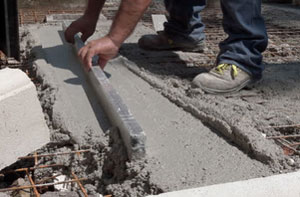
To prevent cracking and improve strength, reinforcement materials like wire, steel mesh or polypropylene fibres are included in the screed mixture during installation. The reinforcement helps the surface to evenly distribute weight and load, as well as improve its ability to resist impact, thermal changes and abrasion.
The reinforcement of screeds decreases the risk of shrinkage and cracking caused by humidity or temperature changes, in addition to increasing their strength and durability. The choice of screed reinforcement material for a project may vary, depending on precise requirements, and can be determined by factors such as finish, load capacity and thickness. Correct installation of the reinforcement is crucial to make sure that it is uniformly distributed throughout the screed and does not become displaced over time. To make certain that their projects will provide a high-quality and functional surface for many years to come, building professionals may use screed reinforcement.
What Does Screeding Do?
Screeding serves several important purposes in construction projects:
- Compatibility with Floor Finishes.
- Support for Underfloor Heating Systems.
- Levelling and Smoothing.
- Improving Sound and Thermal Insulation.
- Structural Integrity and Stability.
- Surface Protection.
- Subfloor Corrections.
- The Even Distribution of Loads.
In a nutshell, the creation of a stable, durable and level floor surface is significantly influenced by the role of screeding. The floor finish is assured of a solid foundation, ensuring its maintenance of aesthetics and quality, and ability to withstand the demands of daily use over an extended period.
Screed Floor Removal
Screed floor removal is used in renovation and construction to strip away existing layers of screed from surfaces. This is a crucial process. This practice removes old flooring and prepares the surface for the new flooring material or other alterations, leaving a clean and smooth surface ready for the next step.
This intricate work is best executed by specialist contractors who have got expertise in screed floor removal. The old screed can be eliminated safely and successfully thanks to their competence, setting the stage for a fresh start for your floor. This fresh start holds enormous significance, whether it's for changes in design, repairs or upgrades.
The process of removing a screed floor involves the use of specialist techniques and equipment that are adapted to the particular requirements of the job. It requires careful consideration of the type and thickness of the existing screed, as well as the surface it is installed on. Careful attention to detail during removal ensures effective removal with minimal damage to the underlying structure.
One of the main benefits of removing screed floors is the opportunity to address any underlying problems that may have developed over time, which is an important factor to consider. A thorough assessment of the substrate is possible only after removing the old layer of screed, if it's uneven, damaged, or compromised. New flooring materials can be safely installed after flooring specialists have completed this assessment and rectified any structural challenges.
Furthermore, in the process of installing an underfloor heating system in Crowland, the first essential task is the removal of the screed floor. To install heating elements effectively, contractors first ensure a clean and level surface by removing the pre-existing screed. As a result, it lays the foundation for an underfloor heating setup that is both effective and efficient, improving the comfort and energy efficiency of the space. (62299 - Screed Floor Removal Crowland)
Related Tasks

There are a wide array of tasks that can be conducted by your local Crowland floor screeder including pumped screed installation in Crowland, bonded concrete floor screeding Crowland, structural screeds, screed bathroom floors Crowland, screed floor removal, rapid strength floor screeds in Crowland, floor preparation, sand screeding, anhydrite screeds in Crowland, floor noise dampening, granolithic screed Crowland, fibre reinforced screeding, lightweight floor screeding, latex screeds Crowland, wet room floors, floor screeding tools Crowland, self-levelling screeding, screed flooring, sand and cement floor screeding, liquid screeding, floor smoothing compounds in Crowland, garage floor screeding, screed reinforcement, floor screeding, conservatory screeding, screeding repairs, screed kitchen floors in Crowland, flow screeding, waterproof floor screeding in Crowland, resin floor screeding Crowland, substrate floor preparation, bonded screed, decorative floor screeding Crowland, concrete floor toppings in Crowland, polished screed floors, and more floor screeding tasks. These are just some of the duties that are accomplished by those specialising in floor screeding. Crowland contractors will keep you informed about their whole range of services.
Floor Screeding Near Crowland
Also find: Whaplode St Catherine floor screeding, Tongue End floor screeding, Baston floor screeding, Holbeach St Johns floor screeding, Cuckoo Bridge floor screeding, Spalding floor screeding, Market Deeping floor screeding, Glinton floor screeding, Shepeau Stow floor screeding, Cowbit floor screeding, Newborough floor screeding, Thorney floor screeding, Peakirk floor screeding, Frognall floor screeding, Deeping St Nicholas floor screeding, Holbeach Drove floor screeding and more. These and other towns and communities are serviced by screeding specialists and associated tradesmen. Possessing the expertise and skills required for delivering top-quality flooring solutions, these competent professionals are well-equipped for this kind of job. They are experts in screeding, ensuring that the task is executed to the highest possible standards, whether it’s for commercial or residential properties. For local home and property owners seeking floor screeding services, it's a straightforward process to gather information and obtain quotes. All you need to do is click here. So, why not get started on your floor screeding project today!
Floor Screeding Services Crowland
- Underfloor Heating Installations
- Industrial Floor Screeding
- Polished Screed Floors
- Floor Insulation
- Fast-Dry Floor Screeding
- Final Floor Finishes
- Residential Floor Screeding
- Cheap Screeding
- Screeding Advice
- Fibre Reinforced Screeding
- Floor Screeding
- Screeding Services
- Bathroom Screeding
- Floor Levelling
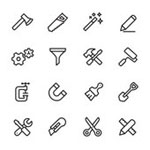
Other Trades Crowland Lincolnshire: Not surprisingly, whenever you happen to be doing home improvements and repairs in Crowland, Lincolnshire, you will probably need all sorts of different tradesmen and aside from screeding in Crowland, Lincolnshire, you might additionally need a roofer in Crowland, a building contractor in Crowland, wood flooring in Crowland, a floor tiler in Crowland, driveway cleaning in Crowland, SKIP HIRE Crowland, garden clearance in Crowland, a plumber in Crowland, a carpenter/joiner in Crowland, a carpet fitter in Crowland, an odd job man in Crowland, an electrician in Crowland, rubber flooring in Crowland, a stonemason in Crowland, an underfloor heating specialist in Crowland, a plasterer in Crowland, and other different Crowland tradesmen.
 Floor Screeding Crowland
Floor Screeding Crowland Screeding Near Me
Screeding Near Me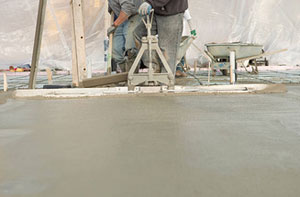 Floor Screeders Crowland
Floor Screeders CrowlandIf you would like to get local Crowland info click here
More: Commercial Screeding, Screeding, Screeding Companies, Screed Flooring, Commercial Screeding, Floor Levelling Services, Screeding Companies, Floor Screeding, Floor Levelling Services, Floor Levelling, Flooring Contractors, Screed Reinforcement, Screed Floors, Residential Screeding, Self-Levelling Screeds, Floor Screeders, Polished Screeding, Screed Flooring, Screed Reinforcement, Screeding Companies, Floor Levelling Services, Residential Screeding, Screed Floors, Cheap Screeding, Floor Screeders, Floor Levelling Services, Cheap Screeding, Floor Levelling Services, Residential Screeding, Floor Levelling Services, Floor Screeders, Screeding Specialists, Floor Screeding, Floor Screeding, Driveway Installers, Driveway Installer, Concrete Driveway Experts.
Floor screeding in PE6 area, (dialling code 01733).
TOP - Floor Screeding Crowland
Floor Screeding Near Me - Industrial Screeding Crowland - Floor Screeder Crowland - Floor Screeders Crowland - Screeding Crowland - Floor Screeding Estimates Crowland - Domestic Screeding Crowland - Quick-Dry Screeding Crowland - Floor Levelling Crowland



